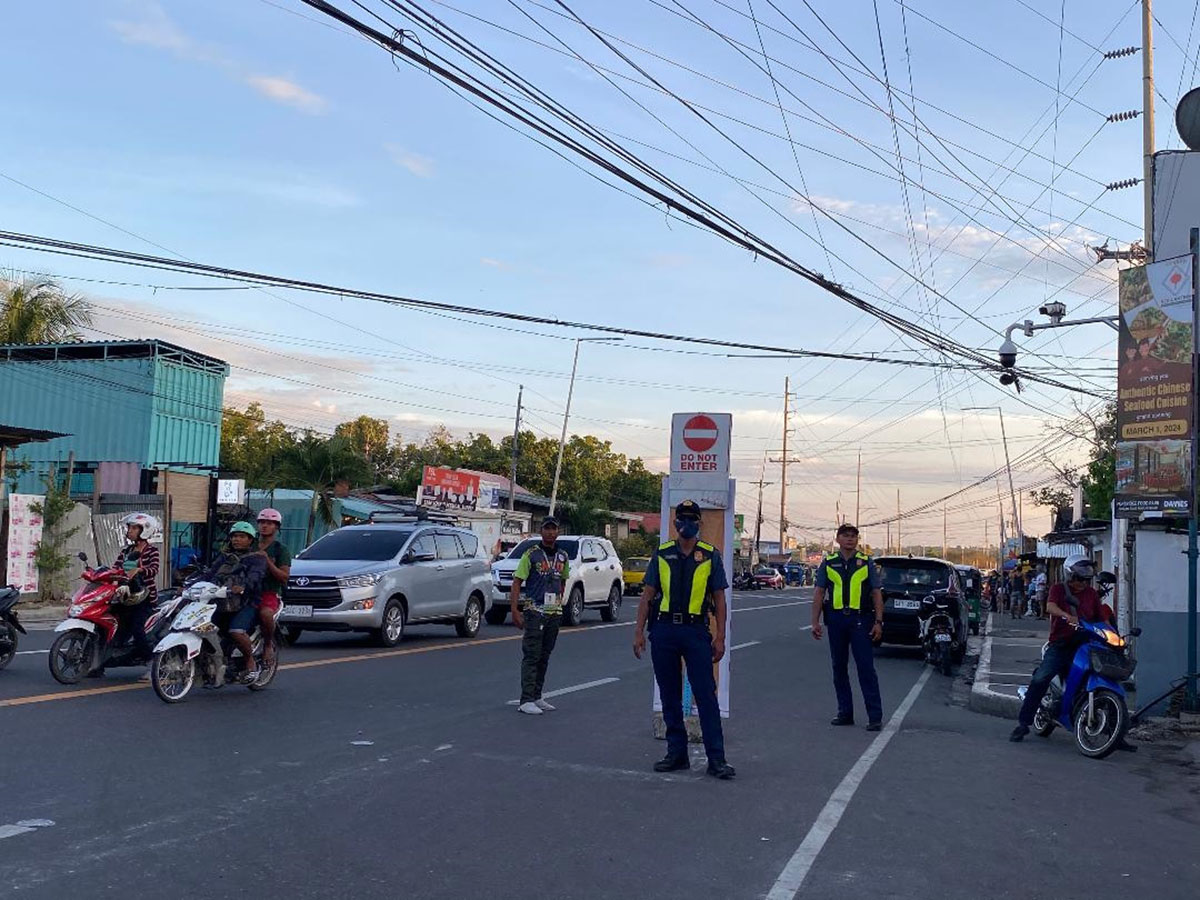Calamity state up in Bohol town as ASF cases spike

COP CHECK Policemen are stationed at a checkpoint in Tagbilaran City, the provincial capital of Bohol, on Friday as part of measures to stop the spread of the African swine fever in Dauis town on Panglao Island where the hog disease was detected. —LEO UDTOHAN
TAGBILARAN CITY — The municipal council of Dauis in Bohol declared the town under a state of calamity this week due to the growing cases of hog deaths caused by the African swine fever (ASF).
“There is a need for vigilant control measures to avoid transmission of diseases to other hogs in nearby municipalities,” read part of the resolution of the Municipal Disaster Risk Reduction and Management Council that the council endorsed on Tuesday.
With the declaration, the local government can already tap its quick response fund to address the needs of affected residents and the procurement of supplies for disease containment and eradication.
READ: In Bohol, gov bars entry of pigs, pork from Panglao to mainland
Since April 17, at least 59 hogs in Barangays Mayacabac, Biking and Mariveles in Dauis have died, all with symptoms associated with ASF.
Article continues after this advertisementLast week, Gov. Aris Aumentado ordered a temporary ban on the entry of live pigs, cooked and raw pork, and pork products and byproducts from Panglao Island to mainland Bohol to protect the P6-billion hog industry.
Article continues after this advertisementThe ban will last for a month, from April 18 until May 18, the fiesta season of the province.
At least 48,000 Boholanos are into backyard hog raising, government records showed.
“I ask the public to not panic because the provincial government is serious in its action to address the matter,” Aumentado said.
The Department of Agriculture (DA) has sent a team to Bohol to focus on cases of ASF on Panglao Island, a prime tourist destination composed of the municipalities of Dauis and Panglao.
READ: Bohol village chief, wife charged for transport of pork products from Cebu
Dr. Constante Palabrica, officer in charge of the Bureau of Animal Industry (BAI), said the team was sent to the villages of Mayacabac, Biking and Mariveles in Dauis to monitor and analyze the situation.
He said the members of the team were well-trained and equipped with instruments that would help in the intensified monitoring, surveillance, investigation, and “test and destroy” operations in the area.
Palabrica said they would gather more blood samples from pigs for testing and send it to local laboratories in Tagbilaran City and in Metro Manila for confirmation.
The DA, he said, is ready for whatever situation connected with the possible spread of the ASF in the province.
Assistance
The Bohol provincial government will provide financial assistance to hog raisers affected by the death of pigs in Dauis town.
According to an advisory from the province, hog raisers will receive P5,000 for every adult pig and P1,000 per piglet in the three villages in Dauis that were affected by ASF.
These hogs will be immediately buried to stop the spread of the disease.
The families of affected hog raisers will also receive a financial assistance of P10,000 from the Provincial Social Welfare and Development Office.
Palabrica said mainland Bohol was in a “light green” zone, which means ASF was not detected and considered a moderate risk.
Dauis has been identified as a “red” or “infected” zone after swine specimen samples from its three barangays tested positive for ASF.
Authorities continued to implement border checkpoints to prevent the entry of hogs and pork products from Panglao Island into mainland Bohol.
The World Organization for Animal Health described ASF as “a highly contagious viral disease of domestic and wild pigs” with no available vaccine, causing a 100-percent mortality rate.
While it rarely infects humans, meat from infected pigs should not be consumed.
“For food safety, we have to bury the infected pigs rather than letting people eat the infected meat,” Palabrica said.